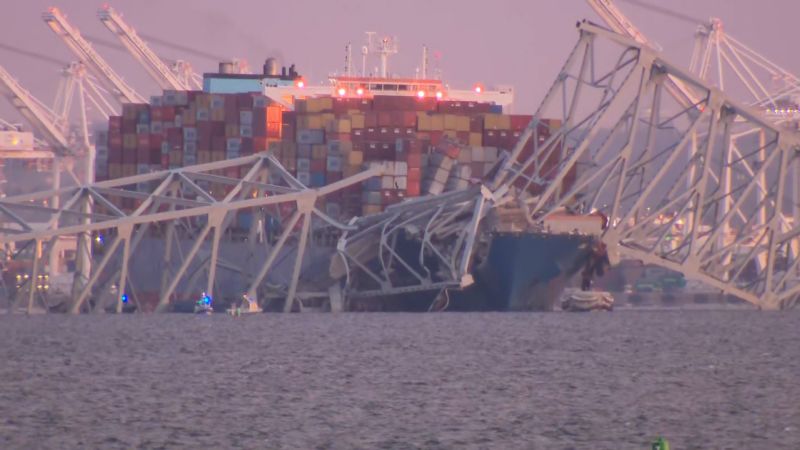The collapse of the Francis Scott Key Bridge in Baltimore has sparked numerous conspiracy theories online, even before the full story has been revealed. One theory suggests that the collapse was intentionally caused by a terrorist group in order to create chaos and panic. Another theory posits that the collapse was a government-orchestrated event to divert attention away from other political issues. These theories highlight the tendency for people to search for alternative explanations when faced with a sudden and unexpected event.
Another popular conspiracy theory surrounding the bridge collapse is that it was a planned demolition rather than a structural failure. Proponents of this theory point to inconsistencies in the footage of the collapse and the lack of a clear explanation from officials as evidence of a cover-up. This theory highlights the mistrust that many people have towards government agencies and their handling of public safety incidents.
Some conspiracy theories surrounding the bridge collapse center around the idea of a “false flag” operation, where a government agency stages an event in order to manipulate public opinion or justify a military response. Proponents of this theory suggest that the collapse was orchestrated by the government as a pretext for enacting stricter security measures or instigating a war. This theory reflects a wider skepticism towards government actions and a belief in hidden agendas behind seemingly random events.
The spread of conspiracy theories surrounding the bridge collapse can have real-world consequences, as they can manipulate public opinion and sow distrust in institutions. By casting doubt on the official narrative and promoting alternative explanations without evidence, conspiracy theories can undermine the public’s faith in the truth and create division among society. It is important for individuals to critically evaluate information and sources before accepting conspiracy theories as fact, in order to prevent further misinformation and confusion.
In the age of social media and instant information sharing, conspiracy theories can quickly gain traction and influence public discourse. The speed and reach of online platforms make it easier for fringe ideas to spread and for individuals to connect with like-minded conspiracists. It is crucial for responsible citizens to question the validity of conspiracy theories and to counter misinformation with well-researched facts and evidence in order to maintain a healthy public discourse and prevent the spread of dangerous ideologies.
Overall, the proliferation of conspiracy theories surrounding the collapse of the Francis Scott Key Bridge in Baltimore serves as a reminder of the human tendency to seek alternative explanations for unexplained events. While it is natural to question authority and dig deeper into the circumstances surrounding such incidents, it is important to differentiate between legitimate inquiries and baseless conspiracies. By promoting critical thinking and fact-checking, individuals can combat the spread of misinformation and uphold the truth in public discourse.


